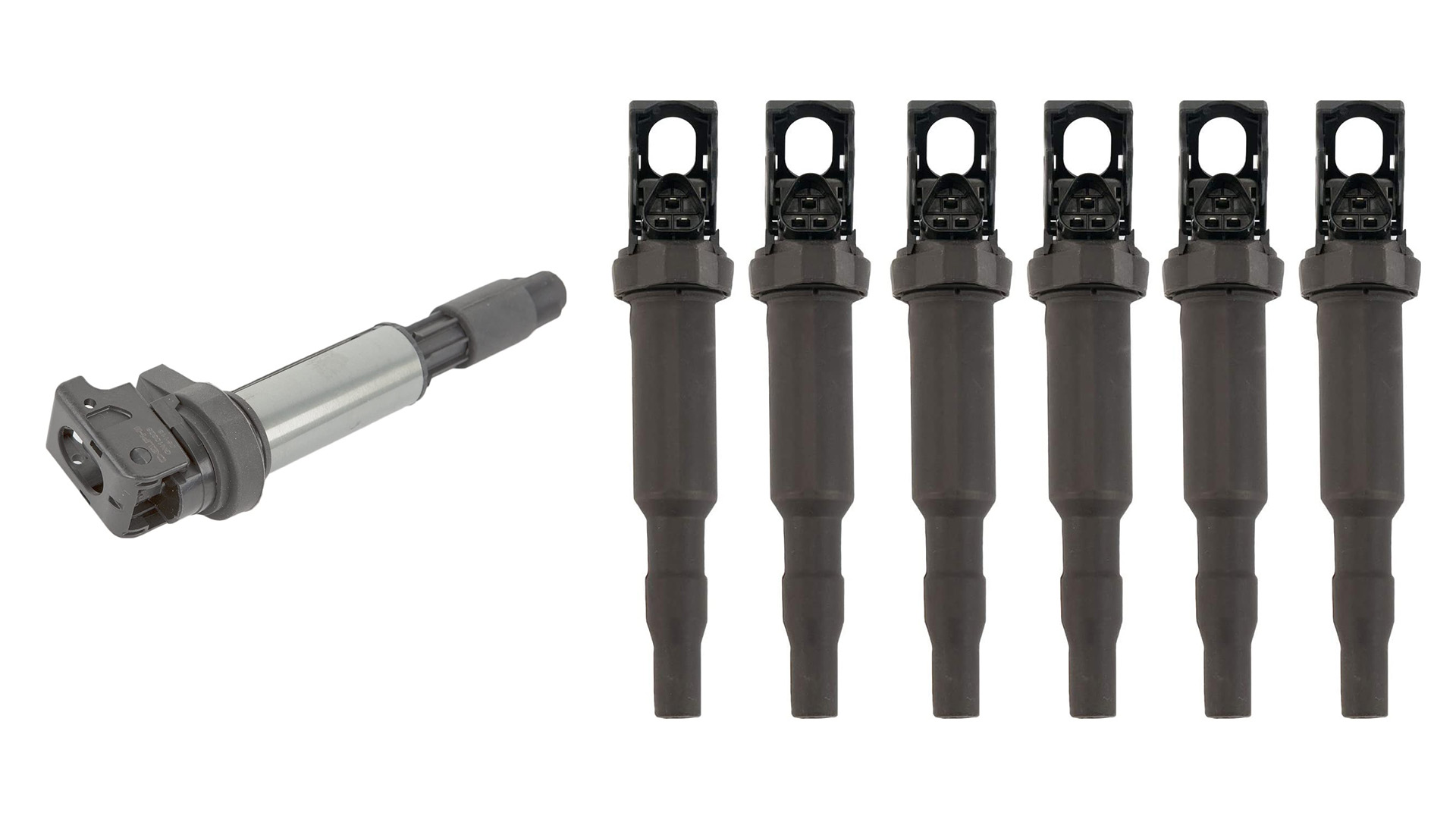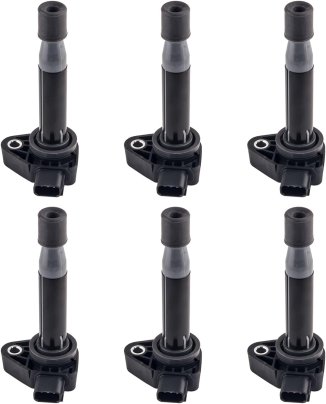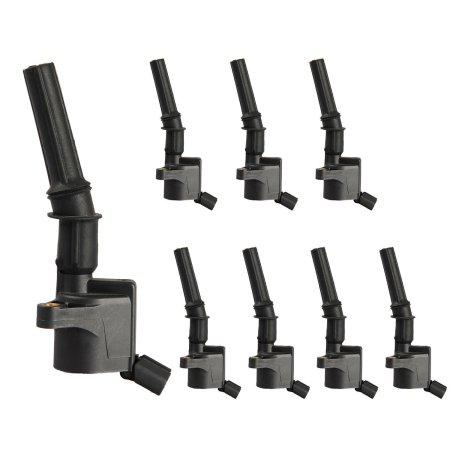We may earn revenue from the products available on this page and participate in affiliate programs. Learn more ›

It’s quite inconvenient to refill your gas tank more than usual. Engine misfires can also be annoying. But before you take your car to the auto shop to see what’s wrong, check your ignition coils. Choosing the best ignition coil ensures you get the best efficiency out of your car, which means you spend less money at the pump. In this review, let’s highlight a handful of great ignition coils, as well as provide a little education on why they’re such crucial engine components.
Summary List of Best Ignition Coils
- Best Overall: Delphi GN10328 Ignition Coil
- Best Value: ENA Set of 8 Ignition Coil Pack
- Honorable Mention: MAS Set of 6 Ignition Coils
- Honorable Mention: AA Ignition Coil Pack Set of 6
- Honorable Mention: Set of 6 Beru Direct Ignition Coils
Best Ignition Coil Reviews & Recommendations
Best Overall
Delphi GN10328 Ignition Coil
Pros
- Superior winding process yields greater wire length control
- Material resists pinholes and cracks that can cause failures
- Epoxy methods reduce air bubbles that can lead to energy leakages
Cons
- Some instances of misfiring
- Some reports of not fitting correctly
Best Value
ENA 8-Pack Ignition Coil Set
Pros
- Easy mounting due to lightweight construction
- Copper material ensures maximum power delivery to the spark plugs
- Very durable and are corrosion- and abrasion-resistant
- Pre-greased for direct replacement
Cons
- May get damaged before the guaranteed mileage
- Quality is not exceptionally good
Honorable Mention
MAS Combo Pack of Ignition Coils for Honda, Acura, Saturn
Pros
- High-grade materials make them reliable and durable
- High electrical resistance and powerful spark
- Resist abrasion and corrosion
Cons
- Do not fit one purchaser’s 2009 Honda Odyssey even though the description says it fits
- Wore out in less than a year for some buyers
Honorable Mention
AA Ignition Coil Pack Set of 6
Pros
- Similar design and construction to popular Bosch units
- Fit a very wide range of vehicles
- Come with a 24,000-mile warranty
Cons
- Brittle clips make installation a tad tricky
- Some users report receiving units with broken caps—inspect before installation
Honorable Mention
Set of 6 Beru Direct Ignition Coils
Pros
- Durable
- Fit many German vehicles
- OE-or-better quality
Cons
- Price
Our Verdict on the Best Ignition Coils
Our pick for Best Overall, the Delphi GN10328 Ignition Coil, is engineered to meet OEM specs and is made from premium materials that provide great insulation.
For a slightly cheaper option, consider the ENA 8-Pack Ignition Coil Set.
FAQs
A: No “Check Engine” light: A bad coil can cause this dashboard light to illuminate. Replacing or upgrading the coil may turn the light off.
More reliable starting: A worn ignition coil can prevent your engine from starting. Upgraded coils enhance starting capabilities and can help ensure your vehicle starts every time as it should without long crank times.
Best performance: A broken ignition coil can make your engine run rough, cough, and backfire. These symptoms are caused by cylinder misfires and fouled spark plugs from a bad coil, which leads to a loss of power.
Better gas mileage: When you install new ignition coils, your engine operates better. An engine that operates better operates more efficiently, which gives you more miles to the gallon.
A: $20-$50: On the lower end of this price range, you usually get just one ignition coil. The quality is there, but this is a breaker point-type coil for older vehicles. On the upper end of the range are coils for vehicles with electronic ignition systems. Your electronic ignition system may use two of these and you might want to replace both. The package you purchase has four, six, or eight coils, depending on the number of cylinders in your engine.
$50-$75: These are coils for electronic or distributorless ignition systems. They fit mid-quality cars and trucks like Ford, Nissan, and Toyota with four, six, or eight cylinders.
$75-$140: The coils in this range are for distributorless ignition systems also, but many are for high-end cars like Lexus, Lincoln, and Infiniti.
A: Always ensure you check fitment lists before purchasing ignition coils. Some coils may be incompatible with your car, resulting in breakage during installation. Most ignition coils come with a full list of compatible fitments.
Ignition coils will typically operate for about 100,000 miles before they need to be replaced. However, to minimize inconveniences, check the status of your coils every time the check engine light comes on.
We suggest buying more ignition coils than you need. A pack of eight is a great choice. To be on the safe side, keep an extra set just in case they need a quick replacement.
If possible, choose ignition coils with a longer warranty. You can always return or exchange them if they malfunction. The coils serve their purpose, and you have peace of mind.
A: When you start noticing more misfires, delayed starts, and poor fuel management, it may be time for ignition coil replacement. It’s also a good idea to follow your manufacturer’s recommended maintenance interval.
Though, usually a check-engine light is a symptom of a failing coil.
A: Make sure your ignition coils are not exposed to extreme temperatures. Even your unused ignition coils need to be stored in a dry place free from excess moisture and heat.
A: When ignition coils don’t function optimally, fuel doesn’t burn as efficiently. You might notice stumbling under acceleration, a slightly roughened idle, decreased fuel economy, or other poor running conditions.








